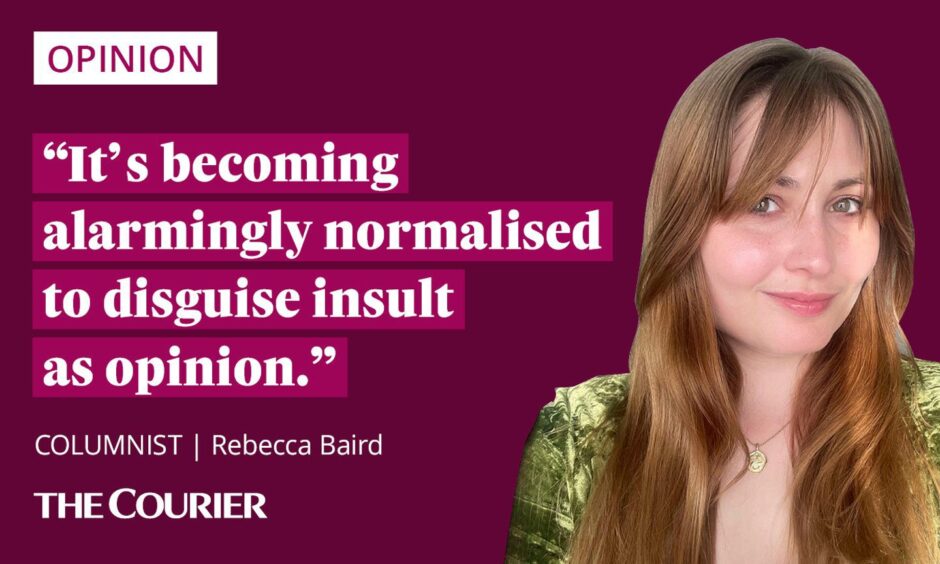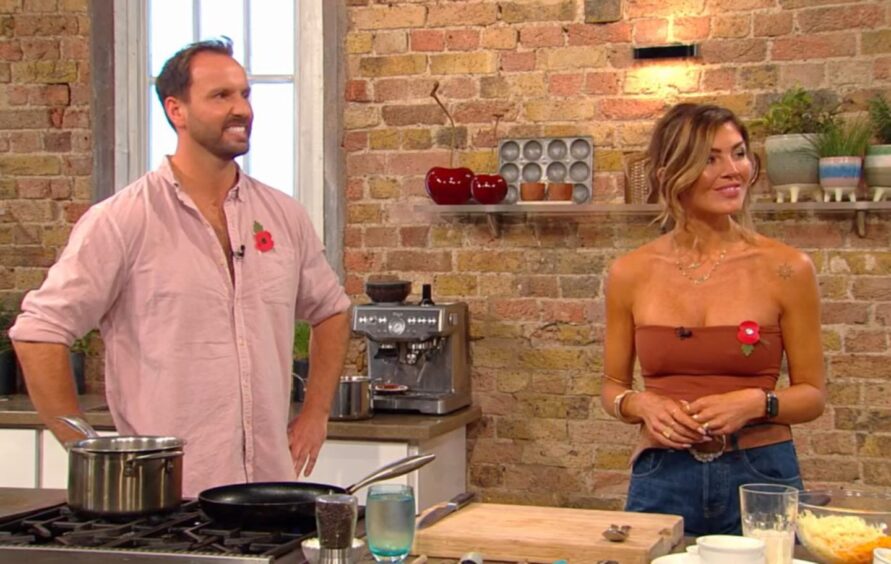Everyone’s entitled to their own opinion.
A concept so simple, we teach it to schoolkids, and one I’m all too aware of when I approach this column each week.
But what some people forget is that the right to voice an opinion comes with a responsibility to be accountable for their words.
We saw this play out in Courier-land this week when a caustic reviewer was put in their place by St Andrews business owners Kate Carter-Larg and Sam Larg.
The online stooshie kicked off when the (now-deleted) Tripadvisor review called the prices of the Cheesy Toast Shack owners’ products “an abomination”.
As much as I have an appetite for melodrama, I can think of many more abominable things than £7 for a toastie the size of my face – still, each to their own, right?
When reviewers go rogue
The problem for me arose when the reviewer moved, rather swiftly, from slating the price of the products to completely flaming the couple themselves.
From attacking their lifestyle (going on holiday is apparently a sin now?) to insinuating that their business model was exploitative (money in exchange for goods?), the reviewer felt really free to share all sorts of opinions that had nothing at all to do with the quality of toasties.
So I understand completely why the pair felt it was “impossible” not to hit back at the review with a quippy response.
In fact, I found it quite refreshing, this unapologetic pettiness. That surprised me.

And it got me thinking about why, in a world full of cave-dwelling keyboard warriors, this one troll needed silenced.
After all, the common wisdom when it comes to anonymous online rubbish-spouting is to “just ignore it”.
But that’s easier said than done in a consumer market which increasingly conflates “brands” with the real human beings behind them.
Are those who share their personalities in their work ‘asking for’ hassle?
It would be ideal if we lived in a world where quality products spoke for themselves.
But in reality, businesses (like the Cheesy Toast Shack) rely on social media followings to generate custom.
And it’s been well-established that when it comes to building up online trust between business and customer, showing the person behind the product does it best.
This leaves business owners with a choice: put yourself out there as part of the ‘brand’ to jumpstart success, or keep yourself out of the firing line but risk limited custom.
Like it or not, whatever you’re selling in 2025, you’re selling yourself along with it – something else I’m all too aware of after years as a Courier columnist and feature writer.
Sharing yourself in your work can be a wonderful way to connect with people. It can also feel pretty vulnerable.
The danger is that people start to see personalities as part of a product, rather than part of a person.
Those with loud opinions feel entitled to reach beyond the matter at hand – a toastie shack review, or often in my case, an article – and get personal, weaponising their one-sided familiarity.
Personal attacks on professional forums? Too far
In my professional capacity as a journalist, I expect people to have their say about the quality of my writing, my subject matter, or my accuracy.
I inevitably get things wrong sometimes, and I say my own loud opinions with the full expectation others will disagree.
But because there’s a picture of me on the piece, and my style of writing is open and personal, some feel entitled to weigh in on other things – my hair colour, my fashion sense, or what those things might mean about my intelligence.
This happens across newsrooms, across boardrooms, across living rooms. It’s becoming alarmingly normalised to disguise insult as opinion.
And it needs redressed, quickly and with force, just as Kate and Sam did. “Ignore it” isn’t an option when that lets folk away with uncalled-for nastiness.
A bad review, or an argumentative email in my inbox, is one thing. Anyone who wants to succeed should be welcoming debate and constructive criticism.
But in this landscape where there is no separation between work and self, where personalities are packaged up and fed to the anonymous masses for consumption, there needs to be a shred of decorum.
If you want to go after a toastie shack, stick to criticising the toasties.














Conversation